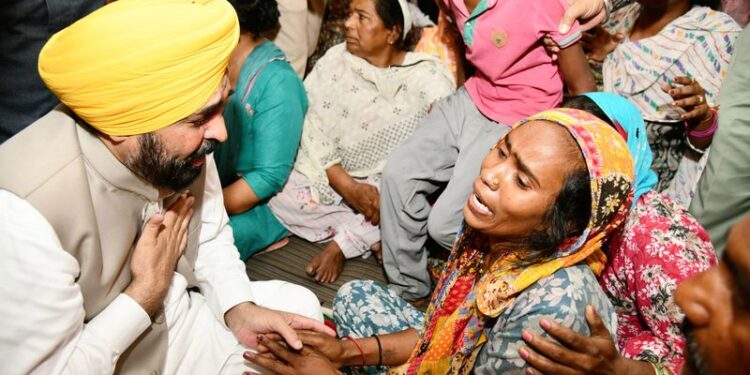The recent liquor tragedy in Amritsar has drawn attention to the troubling involvement of bootleggers who capitalized on the closure of licensed liquor vendors in the area. Punjab Chief Minister Bhagwant Mann has vowed to expose the intricate connections between politicians, law enforcement, and bureaucrats, suggesting that such a network is essential for the operation of the illicit liquor trade. This assertion appears to stem from preliminary reports indicating a “price war” between two rival groups of liquor contractors in Majitha, where one group was undercutting prices while the other, allegedly backed by political figures and operating a larger number of outlets, maintained higher prices. The state’s excise policy establishes a minimum retail price for liquor but does not impose a maximum limit, allowing for significant price disparities. Following the closure of some shops by the less dominant group, bootleggers seized the opportunity to profit from the situation, leading to a surge in the sale of illegal and potentially dangerous alcohol. In response, the state government has instructed excise and police officials to compile a list of individuals previously linked to the illicit liquor trade. Investigations have revealed that the methanol consumed by the victims in Majitha was sourced through an e-commerce platform, prompting the Excise Department to scrutinize GST records, which led to the seizure of a truck transporting methanol from Delhi to Amritsar. Authorities are also probing the involvement of a Ludhiana-based company in facilitating the procurement of methanol. This incident echoes a similar tragedy in Sangrur last year, where 20 individuals lost their lives after consuming methanol-laced liquor purchased online, highlighting the ongoing risks associated with the illegal alcohol trade in the region.
Following the closure of licensed liquor shops in the Amritsar area, illegal bootlegging operations emerged.
Deprecated: str_replace(): Passing null to parameter #3 ($subject) of type array|string is deprecated in /home/u902433967/domains/ozinews.in/public_html/english/wp-content/plugins/jnews-social-share/class.jnews-initial-counter.php on line 40
Deprecated: str_replace(): Passing null to parameter #3 ($subject) of type array|string is deprecated in /home/u902433967/domains/ozinews.in/public_html/english/wp-content/plugins/jnews-social-share/class.jnews-initial-counter.php on line 40
Deprecated: str_replace(): Passing null to parameter #3 ($subject) of type array|string is deprecated in /home/u902433967/domains/ozinews.in/public_html/english/wp-content/plugins/jnews-social-share/class.jnews-initial-counter.php on line 40
Deprecated: str_replace(): Passing null to parameter #3 ($subject) of type array|string is deprecated in /home/u902433967/domains/ozinews.in/public_html/english/wp-content/plugins/jnews-social-share/class.jnews-initial-counter.php on line 40



